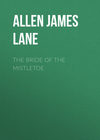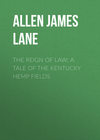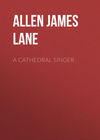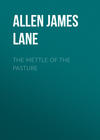Buch lesen: «The Kentucky Warbler»
When the population of this immense Western
Republic will have diffused itself over every acre of
ground fit for the comfortable habitation of man,
…then not a warbler shall flit through our
thickets, but its name, its notes, its habits will be
familiar to all – repeated in their sayings and
celebrated in their village songs
– Alexander Wilson
I
THE HOME
Webster, along with thousands of other lusty forward-looking Kentucky children, went to the crowded public schools.
There every morning against his will but with the connivance of his parents he was made a prisoner, as it seemed to him, and for long hours held as such while many things disagreeable or unnecessary, some by one teacher and some by another, were forced into his head. Soon after they were forced in most of the things disappeared from the head. What became of them nobody knew: Webster didn't know and he didn't care. During the forcing-in process month by month and year by year he now and then picked up a pleasant idea for himself, some wonderful idea about great things on ahead in life or about the tempting world just outside school. He picked up such ideas with ease and eagerness and held on to them.
He lived in a small white-frame cottage which was rather new but already looked rather old. It stood in a small green yard, which was naturally very old but still looked young. The still-young yard and the already-ageing cottage were to be found – should anybody have tried to find them – on the rim of the city. If the architectural plan of the city had been mapped out as an open-air theatre, the cottage would have been a rear seat in the very last row at the very lowest price. The block was made up of such cottages – rear seats. They faced the city but couldn't see the city, couldn't see anything worth seeing, and might as well have looked in some other direction or not looked at all.
If Webster stepped out of the front door, he was within five yards of the outmost thoroughfare – native dirt-road for milk wagons, butchers' wagons, coal carts, and fruit-and-berry wagons. Webster's father kept an especial eye on the coal carts: they weighed heavily on his salary. Webster's mother kept her eye on the fruit-and-berry wagons: they tantalised her passion for preserves. Everybody kept uneasy eyes on milk and butchers' and vegetable wagons, which brought expensive satisfaction to appetites for three meals a day. The edges of the thoroughfare were paths for the cottagers, all of whom walked and were glad and grateful even to be able to walk. The visitors of the cottagers walked. Everybody walked but the drivers. The French would have called the street The Avenue of Soles.
One wet winter morning as Webster, walking beside his father, lifted his feet out of the mud and felt sorry about their shoes, he complained because there was no pavement.
"My son," replied his father, whose remarks on any subject appeared to come out of a clear sky, so unclouded were they by uncertainty, "my son, your father's salary is not a paved-sidewalk salary. The mud on your shoes is in an inverse ratio to the funds in his pockets. I believe you have learned in your arithmetic at school by this time what ratio is."
One dry summer morning as Webster walked beside his father, a butcher's wagon whirled past and covered them quickly with dust. He considered this injury to their best clothes and complained because there was no watering-cart.
"My son," replied his father out of his daily clear sky, "my salary is not a watering-cart salary. The presence of the earth's dust in your eyes exactly equals the lack of gold-dust in your father's earthly account. I believe by this time you have studied equations."
But if Webster had stepped out of the back door of the cottage and passed under the clothes-line which was held up at its middle point by a forked pole, if he had crossed their very small vegetable garden and then had crossed a wide deep cow-lot where some rich man of the city pastured his fat milk cows, he would have been on the edge of the country. It was possible for one standing on the rear porch to see all summer thick, softly waving woods.
Within the past two or three years, as summer had come again and the world turned green, a change had taken place in Webster, a growth. More and more he began to look from the porch or windows at those distant massed trees. Something from them seemed to cross over to him, an influence powerful and compelling; it drew him out of the house back with it into the mystery of the forest and he never returned.
In truth, almost as soon as he could go anywhere he had started toward the forest without asking permission. They had overtaken him then and dragged him back. When he was old enough to understand, they had explained: he was too young, he would get lost, the bull would hook him.
"But why?" Webster had asked, complaining of this new injustice in the world. He was perpetually being surprised that so many things in the world were bent on getting one into trouble; all around him things seemed to be waiting to make trouble. "Why should the bull hook me? I've done nothing to the bull."
They were about finishing breakfast. He was eating in his slow ruminant way – he ate enormously but never hungrily. His father, whose custom it was to divide the last half of his breakfast with the first half of his newspaper, lowered the paper and looked over the top.
"My son," he said, "the bull has horns. Every living creature is bound to use everything it has. Use what you have or lose what you have – that is the terrible law in this world. Therefore the bull is obliged to hook what he can to keep his horns going. If you give him the chance, he will practise them on you. Otherwise his great-great-grandson might not have any horns when he really needed them. Do you understand?"
"No," said Webster.
"I'll explain again when you are mature enough to comprehend," said his father, returning to his paper.
Webster returned to the subject.
"If I ever have any money in my pocket, you always tell me not to spend it: now you say I ought to use whatever I have."
His father quickly lowered his paper and raised his voice:
"I have never said that you must use everything all at once, my son. You must learn to use it at the right time."
"When is the right time to use a thing?" asked Webster, eating quietly on.
"I'll answer that question when it is necessary," his father replied grumblingly from behind his paper, putting an end to the disturbance.
A few weeks prior to this breakfast-scene Webster one day at recess had laid bare a trouble in himself, confiding it to one of his intimate school-mates. He did so with a tone of uncertainty, for he was not sure but he was not being disloyal.
"Can your father answer all the questions you ask him?"
"Not half of them!" exclaimed the comrade with splendid candour – "Not half!"
"My father answers very few I ask him," interposed a fragile little white-faced fellow who had strolled up in time to catch the drift of the confidential talk. He did not appear strong enough even to put a question: he nursed a ragged ball, had lost a front tooth, and gave off the general skim-milk look which some children carry about with them.
Webster, without inquiring further, began to feel a new respect for himself as not being worse off than other boys as to fathers; also a new respect for his father as not being worse than his class: fathers were deficient!
Remembering this discovery at school – one of the big pleasant ideas he picked up outside lessons – he did not on the morning in question press his father more closely as to using horns when you have them and not using money when you have it. In fact, he was already beginning to shield his father and had quite ceased to interrogate him in company, lest he expose some ignorance. He therefore credited this incident where it belonged: as a part of his growing knowledge that he couldn't look to his father for any great help on things that puzzled him – fathers, as had been said, being deficient, though always contriving to look so proficient that from merely surveying them you would never suspect the truth.
Webster's father was a minor bookkeeper in one of the city's minor banks. Like his bankbooks, he was always perfectly balanced, perfectly behaved; and he was also perfectly bald. Even his baldness might have been credited to him as one of the triumphs of exact calculation: the baldness of one side being exactly equal to the baldness of the other: hardly a hair on either exposure stood out as an unaccounted-for remainder.
Webster thought of his father as having worked at nothing but arithmetic for nearly forty years. Sometimes it became a kind of disgust to him to remember this: as was his custom when displeased at anything he grew contemptuous. In one of his contemptuous moments he one day asked:
"How many times have you made the figure 2?"
"Three quadrillion times, my son," replied his father with perfect accuracy and a spirit of hourly freshness. His father went on:
"The same number of times for all of them. When you're in the thousands, you may think one or the other figure is ahead, but when you get well on into the millions, there isn't any difference: they are neck and neck."
This subject of arithmetic was the sorest that father and son could have broached: perhaps that was the reason why neither could get away from it. The family lived on arithmetic or off it – had married on it, were born unto it, were fed by it, housed and heated by it, ventilated and cooled by it. Webster's father's knowledge of arithmetic had marched at the head of the family as they made their way through time and trouble like music. It had been a lifelong bugle-blast of correct numerals.
Hence the terrible disappointment: after Webster had been at school long enough for grading to begin to come home as to what faculties he possessed and the progress he made, his parents discovered to their terror and shame that he was good in nothing and least good in arithmetic. It was like a child's turning against his own bread and butter and shirt and shoes. To his father it meant a clear family breakdown. The moment had come to him which, in unlike ways, comes to many a father when he feels obliged to say: "This is no son of mine."
In reality, Webster's father had had somewhat that feeling from the first. When summoned and permitted, he had tipped into the room on the day of Webster's birth and taken a father's anxious defensive look. He had turned off with a gesture of repudiation but of the deepest respect:
"No such head and countenance ever descended to him from me! We must be square with him from the start! I place to his credit the name of Daniel Webster. His mother, instead of admiring her husband, had been gazing too fondly at the steel engraving of the statesman over the mantelpiece in the parlour."
When Webster was several years old, one day during a meal – nobody knew just what brought forth the question – he asked:
"Why was I named Webster?"
His father answered:
"Because you looked like him."
Webster got up quietly and went into the parlour and quietly returned to his seat at table:
"No, I don't look like him," he said.
"You looked like him the day you were born, my son. Any resemblance to Daniel Webster is apt to become less and less. Finally, you don't look like him any more. In the United States Senate nowadays, for instance, there isn't a trace of resemblance left anywhere. Senators at present look more like me and you know what that means: it means that nobody need feel obliged to think of Daniel Webster!"
That birthday jest – that he was not quite entitled to the nativity of his own son, an uneasiness perhaps inherited by fathers from the rudimentary marriages of primitive society – was but a jest then. It gradually took on serious meaning as his son grew further away from him with each year of growth. The bad passing of the arithmetic milestone had brought the worst distinct shock. Still, even that left Webster's father perfectly balanced, perfectly behaved: he remained proud of his unlike offspring, fed and clothed him, and was fond of him.
There is a bare possibility also that in Webster he saw the only chance to risk part of his salary in secret speculation. Nearly everybody in the town gambled on something. The bank did not favour the idea that its employees should enjoy any such monetary pastime. But even a bank cannot prevent a father from betting on his own son if he keeps the indiscretion to himself. Thus it is barely possible that, in the language of the country, Webster's father took chances on Webster as a winning colt on some unknown track, if he should ever take a notion to run! Why not bet, if it cost the same as not to bet: at least you had the excitement?
Webster on his part grew more and more into the belief that his father not only could not answer his questions but – what was of far greater consequence – did not open up before him any path in life. His first natural and warm desire had been to imitate his father, to follow in his footsteps: slowly he discovered that his father did not have any footsteps, he made no path. His affection still encircled his father like a pair of arms; his eyes had completely abandoned him as a sign-post on life's road.
Mothers often open up roads for their sons or point them out, but Webster could not look to his mother for one unless he had wished to take a short road to an uneventful past. The kind of a mother she was resulted from the kind of a wife she was. She had taken her husband's arm at marriage to keep step at his side through life. Had he moved forward, she would have moved forward. Since he did not advance, but in his life-work represented a kind of perpetual motion without progress, she stayed by him and busied herself with multifarious daily little motions of her own. Her roadless life had one main path of memory. That led her backward to a large orchard and garden and yard out in the country, filled with fruit trees and berry-bearing bushes and vines. She, now a middle-aged wife and mother, was a sentimental calendar of far-away things "just ripe." The procession of fruit-and-berry wagons past the cottage from May to October had upon her the effect of an acute exacerbation of this chronic lament. The street cry of a vendor, no matter how urgent her duty anywhere in the cottage at the moment, brought her to a front window or to the front porch or even swept her out to the front gate, to gratify her eyes with memories and pay her respects to the impossible. She inquired the cost of so much and bought so little that the drivers, who are keen and unfavourable judges of human nature, when they met at cross streets and compared notes – the disappointed, exasperated drivers named her Mrs. Price: though one insisted upon calling her Lady Not-Today. Whenever at the bottom of her pocketbook she found spare change for a box of brilliant, transparent red cherries, she bore it into the cottage as rapaciously as some miser of jewels might have carried off a casket of rubies. Thus you could almost have said that Webster had been born of arithmetic and preserves. Still, his life with his father and mother was wholesome and affectionate and peaceful – an existence bounded by the horizon of the day.
His boyhood certainly had no wide field of vision, no distant horizon, as regards his sleeping quarters. In building the cottage a bathroom on the first floor had been added to one side of it as a last luxurious afterthought. If you stood before the cottage and looked it squarely in the face, the bathroom protruded on one side like a badly swollen jaw. The building-plan when worked out, had involved expense beyond the calculation, as usually happens, and this had threatened the Salary: the extra bath, therefore, remained unrealised. Webster always asked at least one question about everything new and untried, and when old enough to be put there to sleep, he had looked around the cramped enclosure and inquired why it had been built. Thus he learned that in the family he had now taken the place of the Bath That Failed. It caused him a queer feeling as to his general repute in the neighbourhood that the very sight of him might bring to any observer's mind thoughts of a missing tub.
His window opened upon a few feet of yard. Just over the fence was the kitchen window of the cottage next in the row. When that window was open, Webster had to see the kitchen table and the preparation for meals. He violently disliked the sight of the preparations. If the window was closed, tidings as to what was going on reached him through another sense; his bedroom-bathroom became as a whispering gallery of cooking odours. But their own kitchen was just across a narrow hall, and fragrances from it occasionally mingled with those from the kitchen over the fence. Made hungry by nasal intelligence of something appetising, Webster would sometimes hurriedly dress and follow his pointer into the breakfast room, only to find that he was on a false trail: what he had expected to get his share of was being consumed by the family next door. He no longer had confidence, so to speak, in his own nose – not as a leading authority on meals to be eaten by him.
One beautiful use his window had, one glorious use, one enchantment. In the depth of winter sometimes of mornings when he got out of bed and went to open the shutter, on the window panes would be a forest of glittering trees. The first time he beheld such a forest, he stood before it spell-bound: wondering whether there were silvery birds singing far off amid the silvery boughs and what wild frost-creatures crouched in the tall stiff frost-grass. From the ice-forests on his window panes his thoughts always returned to the green summer forest on the distant horizon.
The pest of his existence at home was Elinor – a year younger but much older in her ways: to Webster she was as old as Mischief, as old as Evil. For Elinor had early fastened herself upon his existence as a tease. She laughed at him, ridiculed his remarks, especially when he thought them wise, dragged down everything in him. As they sat at table and he launched out upon any subject with his father – quite in the manner of one gentleman indulging his intellect with another gentleman over their rich viands – Elinor went away up into a little gallery of her own and tried to boo him off the stage. His father and mother did not at times conceal their amusement at Elinor's boo's. He sometimes broke out savagely at her, which only made her worse. His mother, who was not without gentle firmness and a saving measure of good sense, one day disapproved of his temper and remarked advisedly to him, Elinor having fled after a victory over him:
"Elinor teases you because she sees that it annoys you. She ought to keep on teasing you till you stop being annoyed. When she sees that she can't tease you, she'll stop trying."
That was all very well: but one day he teased Elinor. She puckered up and began to cry and his mother said quickly:
"Don't do that, Webster."
Then besides: a few years before he had one day overheard his mother persuading his father that Elinor must not be sent to the public school.
"I want her to go to a private school. She has such a difficult disposition, it will require delicate attention. The teachers haven't time to give her that patient attention in the public schools."
"My dear," Elinor's father had replied, shaking his head, "your husband's salary is not a private-school salary. It also has a difficult disposition, it also requires the most careful watching!"
"The cost will be more but she must go. Some extra expense will be unavoidable even for her clothing but I'll take that out of my clothes."
"You will do nothing of the kind! If Elinor has a difficult disposition, she gets it from Elinor's father; for he had one once, thank God! He had it until he went into the bank. But a bank takes every kind of disposition out of you, good or bad. After you've been in a bank so many years, you haven't any more disposition. Only the president of a bank enjoys the right to have a disposition. All the rest of us are mere habits – certain habits on uncertain salaries. Let Elinor go to her select school and I'll go a little more ragged. The outside world thinks it a bank joke when they look through the windows and see bank clerks at work in ragged coats: instead they know better. Let Elinor go and let the damages fall on her father. He will be glad to take the extra cost off his own back as a tribute to his unbanked boyhood. I hope you noticed my pun – my dooble intender."
Thus Elinor was sent to the most select private school of the city. Webster weighed the matter on the scales of boyish justice. If you had a bad disposition, you were rewarded by being better dressed and being sent to the best school; if you had a good disposition, you dressed plainly and went to the public school. What ought he to do about his own disposition? Why not turn it into a bad one? It was among Webster's bewilderments that he was so poorly off as not to be able to muster a troublesome enough disposition to be sent to one of the city's select private schools for boys: he should very much have liked to go!
"I go to a private school because I am nice," Elinor had boasted to him one morning. She was sitting on the front steps as he came out on his way to school, and she looked very dainty and very charming – a dark, wiry, fiery, restless little creature, and at the moment a bit of brilliant decoration. "And I get nice marks," she added pointedly.
He paused to make a quietly contemptuous reply.
"Of course you get nice marks: that's what private schools are for – to give everybody nice marks. If you went to the public school, you'd get what you deserved."
"Then you seem to deserve very little," said Elinor, smoothing a lock of her black hair over one ear.
His rage burst out at her deadly thrust:
"You go to a private school because you are a little devil," he said.
"Why don't you be a little devil too?" inquired Elinor, her bright eyes mocking him. "Can't you be a little devil too?"
He jerked the strap tighter around his battered books:
"If you were in the public schools, they wouldn't put up with you. They'd send you home or they'd break you in."
"Oh, I don't know," said Elinor, with an encouraging smile, "they seem to get along with you very well."
Webster knew that Elinor's teasing, ridiculing eyes followed him as he walked away. They became part of the things that cheapened him in his life. When he had passed through the front gate, he started off in a direction which was not the direction to school.
Elinor sang out shrilly:
"I know where you are going. But it's of no use. Jenny's sweetheart goes to a private school and he stands well in his classes."
He walked on, but turned his face toward her:
"It's none of your meddlesome business, you little black scorpion," he said quietly.
With an upward bound of his nature he thought of Jenny, a very different sort of girl.
Jenny lived in the largest cottage of the block, at the better of the two corners. The families visited intimately. Jenny's father was a coal merchant and Webster's father bought his coal of Jenny's father. A grocer lived in the middle of the block: he bought supplies from that grocer. "If you can," he said, "deal with your neighbours. It will make them more careful: they won't dare …!" On the contrary, Jenny's father did not deposit his cheques in Webster's father's bank. "Don't do your business with a neighbour," he said. "Neighbours pry."
Jenny represented in Webster's life the masculine awakening of his nature toward womankind. In the white light of that general dawn, she stood revealed but not recognised. A little thing had happened, the summer previous, which was of common interest to them. In a corner of Jenny's yard grew a locust tree, not a full forest-sized locust tree but still quite a respectable locust tree for its place and advantages. All around the trunk and up the trunk clambered the trumpet-vine. Several yards from the earth some of the branches bent over and spread out as a roof for a little arbour – Jenny's summer play-house.



















